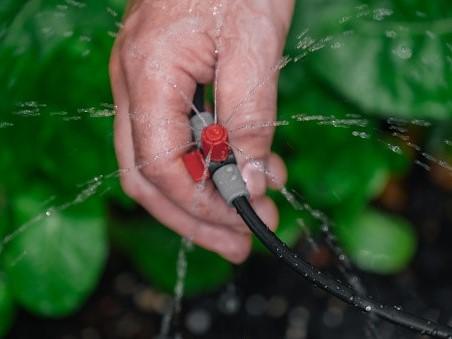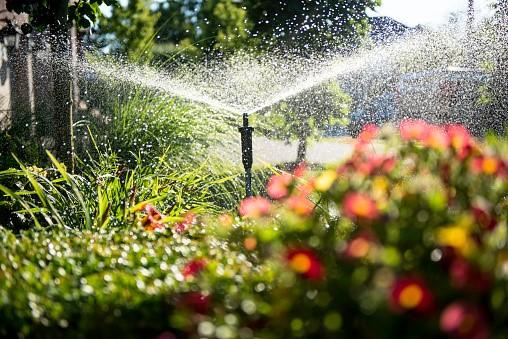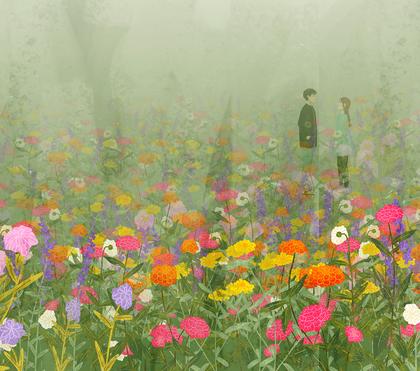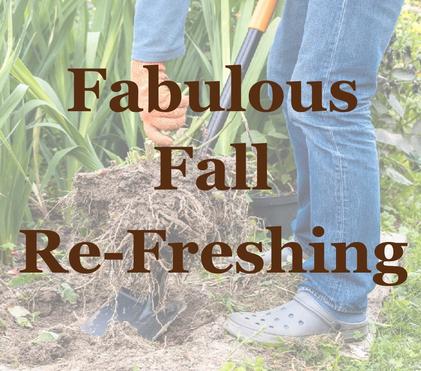Drip vs. Sprinkler Irrigation: A Guide for Home Gardeners
Efficient irrigation is crucial for maintaining a healthy garden, especially during the hot summer months. Our team at Belmont Nursery wants to ensure you equip your yard with its best chance at plant success! When it comes to watering your plants, two popular methods are drip irrigation and sprinkler irrigation. Both have their advantages and disadvantages, and the best choice depends on your specific gardening needs. Here’s a detailed comparison to help you decide which system is right for you.

Drip Irrigation
Drip irrigation involves delivering water directly to the base of plants through a network of tubes, pipes, and emitters. This method ensures that water is applied slowly and directly to the root zone.
Pros:
- Water Efficiency: Drip irrigation minimizes water wastage by delivering water directly to the plant roots, reducing evaporation and runoff.
- Reduced Weed Growth: By targeting specific plants, drip irrigation limits water distribution to unwanted areas, thereby reducing weed growth.
- Healthier Plants: Consistent and direct water supply to the roots promotes healthier plant growth and reduces the risk of fungal diseases associated with wet foliage.
- Flexibility: Drip systems can be easily customized to suit different garden layouts and plant types.
- Out of Sight: Drip lines can be hidden under mulch or bark.
Cons:
- Installation Complexity: Setting up a drip irrigation system can be time consuming and may require a higher initial investment compared to sprinklers.
- Maintenance: Emitters and tubes can become clogged by dirt and minerals, requiring regular maintenance to ensure efficient operation.
- Aesthetic Impact: The visible tubing and emitters might be considered unsightly by some gardeners.
Sprinkler Irrigation
Sprinkler irrigation involves distributing water through a system of underground pipes and rotating or stationary sprinkler heads. This method mimics natural rainfall, covering a large area.
Pros:
- Ease of Installation: Sprinkler systems are relatively easy to install, especially for large, open areas.
- Coverage: Sprinklers can cover large areas uniformly, making them ideal for lawns and wide garden beds.
- Cooling Effect: Overhead watering can help cool down plants and soil during hot weather.
- Versatility: Sprinkler heads can be adjusted or changed to accommodate different garden layouts and watering needs.
Cons:
- Water Waste: Sprinklers can waste water due to evaporation, runoff, and overspray, especially in windy conditions.
- Weed Growth: Watering the entire area, including spaces between plants, can encourage weed growth.
- Fungal Diseases: Wet foliage from overhead watering can increase the risk of fungal diseases in plants.
- Uneven Distribution: In uneven terrain or gardens with varied plant heights, achieving uniform water distribution can be challenging.
- Watering Needs: Trees, shrubs and lawn all require differing quantities of water and different intervals through the week. Watering with sprinklers long enough to satisfy those different needs can be tricky. Trying to deep water trees in a lawn area often results in excessive runoff.
Which System is Right for You?
Consider Drip Irrigation If:
- You have a garden with diverse plant types and varying water needs.
- Water conservation is a priority.
- You want to reduce weed growth and minimize water wastage.
- You are willing to invest time and effort in installation and maintenance.
- You need a versatile solution that can be easily adjusted or moved.
Consider Sprinkler Irrigation If:
- You have a large lawn or garden with uniform water requirements.
- Ease of installation and maintenance is important to you.
- You prefer a system that can cool plants and soil.
Both drip and sprinkler irrigation systems have their unique advantages and disadvantages. The choice between them depends on your specific gardening needs, budget, and willingness to maintain the system. By understanding the differences and weighing the pros and cons, you can select the irrigation method that will keep your garden thriving throughout the growing season.


